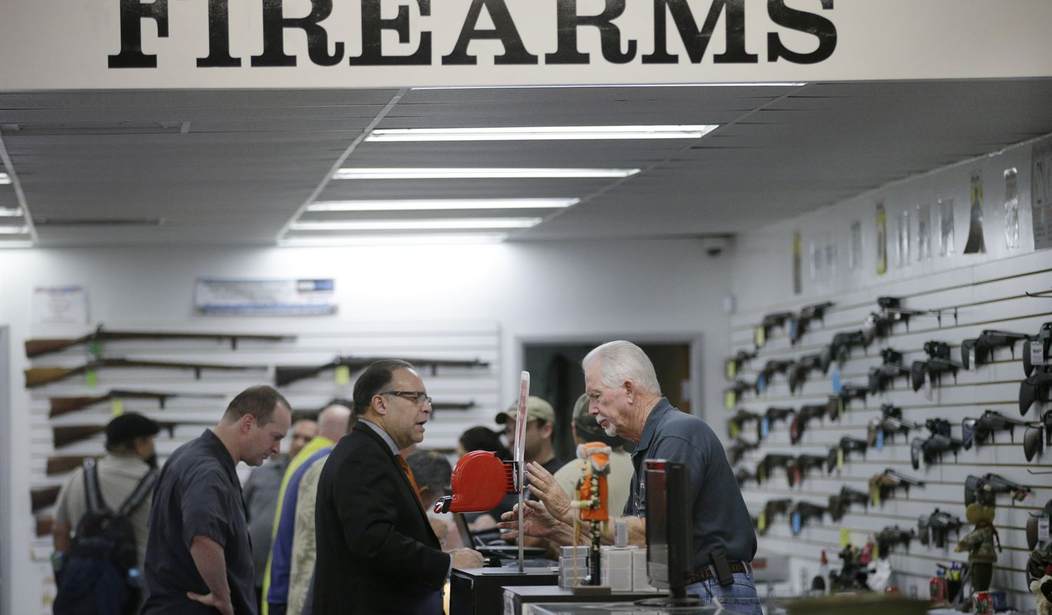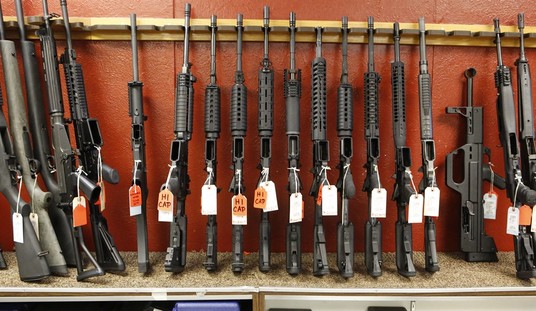One of the go-to arguments for gun control activists is to point to other countries that have very restrictive gun laws as examples for the U.S. to follow. “Just look at Australia, or England, or Japan,” they exclaim, without ever really bothering to dig in too deeply into the history of gun controls in these countries.
Jeff Ibara, who’s a PhD student in public health in Hawaii, claims that all we need to do to reduce “gun violence” is to follow the lead of other nations, but Ibara’s argument leaves out some critically important information.
The U.S. needs to follow other countries’ policies that have lowered gun violence, including in Australia, South Korea, and Japan.
For example, in 1996 Australia improved their gun control policy by enhancing their licensing and registration system. This required all potential gun owners to have a “genuine reason” for having a firearm — personal protection not being one of them.
Furthermore, automatic and some semi-automatic guns were banned. A “cooling off period” was included to ensure anyone who wants a firearm must wait nearly a month between applying for and buying a gun.
In addition, the Australian government spent $304 million to buy back and destroy 650,000 firearms. In the years since there has been only one mass shooting — an instance of domestic violence, which killed one adult and three children.
Gun control activists love to point to Australia as a model for the U.S., but Ibara fails to note that Australia doesn’t protect the right to keep and bear arms like the United States does. There is no right to keep and bear arms in Australia. Instead, gun ownership is viewed as a privilege. That automatically takes the idea of restricting gun ownership to those who can demonstrate a “genuine need” off the table, because here in the U.S., we have the right to keep and bear arms.
Ibara also fails to note that Australia’s gun confiscation efforts didn’t end the gun control debate in the country. In fact, there are more guns in Australia today than before the 1996 gun confiscation effort took place (though the 3.6-million guns in private hands are less than 1% of the privately owned firearms in the United States), and gun control activists in the country are continuing to demand more restrictions, including another round of gun confiscations.
While Australia’s swift and broad gun control laws are often praised, it is not the only country that has figured out ways to essentially eliminate massacres. South Korea has more than half a million registered guns, but they are not easy to obtain nor are they readily accessible.
People in South Korea must first obtain a license from police. If the person purchasing a license has a violent criminal or mental health record, then that person is denied a gun license.
In addition, they can only purchase air rifles or hunting guns. This means automatic and semi-automatic rifles are banned.
In another step to improve gun control, firearms must be kept at police stations rather than at home when not in use — generally outside of hunting season. Finally, the advertising of guns and ammunition is banned.
As in Australia, gun ownership in South Korea isn’t considered a right. South Korea only has 500,000 registered guns, but here in the United States we have more than 400-million arms in the hands of private citizens. Ibara also fails to mention that South Korea engaged in mass confiscations of firearms in the 1970s, which isn’t going to fly here in the United States.
What about Japan?
After World War II Japan no longer wanted to participate in the violence associated with war, so the Japanese started voluntarily giving up their guns in the 1960s. Currently, Japanese are allowed to own guns but an extensive process is involved in order to obtain a gun.
In addition, Japan has reduced gun violence through police training. Unlike the U.S, Japan’s police officers are not allowed to hold guns at any time — they must learn martial arts in order to defend themselves and others.
For example, when walking into a dispute or public issue, instead of presenting themselves as a threat with a gun, they wrap people disturbing the public in a futon mattress futon and carry them out. And, although they do not carry guns, the police visit gun owners’ homes once a year to make sure peoples guns are kept securely.
Japanese law has never protected a right to own firearms, and the country’s restrictions on private ownership of arms dates back to the 16th Century, when Hideyoshi Toyotomi banned the possession of swords and firearms for anyone other than soldiers. As a result, gun ownership has never been common, and as of 2011 there were fewer than 300,000 legally-owned firearms in the country.
None of the countries that Ibara points to as models for the United States to follow have ever viewed gun ownership as a right. None of them have ever had a significant portion of the population own firearms, and none of them have ever had as many firearms in the hands of private citizens as we do today.
Ibara seems to think we can wave some magic wand and make 100-million gun owners volunteer to give up their right to keep and bear arms, which is simply absurd. The right to keep and bear arms is an inherent part of our traditions, culture, and our individual liberties, unlike the countries that Ibara mentions, and any attempt to impose the kinds of restrictions that are in place in these other nations would be met with widespread resistance on the part of millions of Americans and dozens of states.
Two of the nations that Ibara references (South Korea and Japan) were monarchial societies for centuries, with constitutional democracies only coming into existence after World War II (Korea was under Japanese control for most of the first half of the 20th Century as well). In fact, Australia didn’t become fully autonomous from the United Kingdom until 1942 as well.
In other words, it’s not just the gun laws that are different in these countries. It’s the entire culture. Here in the United States we’ve long rejected the idea of subservience to the whims of the State and its leaders. We’ve had more freedom of speech, of religion, and yes, of gun ownership as well. To change that would be to fundamentally change the relationship between the citizens and our government, and we would lose far more than just our right to keep and bear arms if we would ever be foolish enough to follow Ibara’s advice.









Join the conversation as a VIP Member